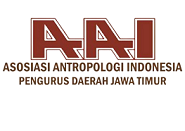Collaborative decision-making and sustainable food security: Rethinking the role of indigenous knowledge and farming practices in Uganda
Downloads
The paper examines the role of stakeholders' joint decision-making in exploiting indigenous knowledge and practices of local people to achieve sustainable food security. It assesses ways in which the collaboration of farmers and stakeholders in Uganda enhances knowledge sharing, which is vital for sustainable food security. Specifically, the study assesses the significance of indigenous knowledge in enhancing food security, the importance of joint decisions of stakeholders (farmers, community development workers, and extension workers) to food security enhancement, and the factors farmers consider when choosing indigenous/modern practices for enhancing food security. Qualitative methods of data collection were used to get views and experiences of the selected sixty-seven rural farmers in their efforts to enhance food security. Findings reveal that collaboration between farmers and stakeholders is vital for providing opportunities of sharing knowledge and experience and for determining the right combination of practices that enhance sustainable food security. The study recommends designing guidelines for routine monthly meetings between farmers and key stakeholders to share knowledge and experiences that are relevant to enhancing sustainable food security.
Al-Shawabkeh, K. M., Alhawari, S. F., & Al-Kharabsheh, M. A.-H. (2022). Toward a smart organization, integrating KM processes, and organizational capabilities. International Journal of Sociotechnology and Knowledge Development, 14(1), 1–28. https://doi.org/10.4018/IJSKD.289040
Amiyo, R. M. (2012). Decision enhancement and business process agility. University of Groningen.
Aregu, R. (2014). Market and price decision enhancement services for farmers in Uganda. University of Groningen.
Asogwa, I. S., Okoye, J. I., & Oni, K. (2017). Promotion of indigenous food preservation and processing knowledge and the challenge of food security in Africa. Journal of Food Security, 5(3), 75–87.
Azadegan, A., & Kolfschoten, G. (2014). An assessment framework for practicing facilitator. Group Decision and Negotiation, 23(5), 1013–1045. https://doi.org/10.1007/s10726-012-9332-4
Boukhris, I., Ayachi, R., Elouedi, Z., Mellouli, S., & Amor, N. Ben. (2016). Decision model for policy makers in the context of citizens engagement. Social Science Computer Review, 34(6), 740–756. https://doi.org/10.1177/0894439315618882
Briggs, J., & Moyo, B. (2012). The resilience of indigenous knowledge in small-scale African agriculture: Key drivers. Scottish Geographical Journal, 128(1), 64–80. https://doi.org/10.1080/14702541.2012.694703
Curşeu, P. L., Meslec, N., Pluut, H., & Lucas, G. J. M. (2015). Cognitive synergy in groups and group-to-individual transfer of decision-making competencies. Frontiers in Psychology, 6. https://doi.org/10.3389/fpsyg.2015.01375
Dawra, S., Chand, P. K., & Aggarwal, A. (2022). Leader member exchange, nepotism, and employee loyalty as the determinants of organizational sustainability in small and medium enterprises in India. International Journal of Sociotechnology and Knowledge Development, 14(1), 1–21. https://doi.org/10.4018/IJSKD.297980
De Weger, E., Van Vooren, N., Luijkx, K. G., Baan, C. A., & Drewes, H. W. (2018). Achieving successful community engagement: A rapid realist review. BMC Health Services Research, 18(1), 285. https://doi.org/10.1186/s12913-018-3090-1
Denzin, N. K., & Lincoln, Y. S. (1994). A Hand Book of Qualitative Research. New Delhi: Thousand Oaks, Sage publications.
Eseryel, U., Wie, K., & Crowston, K. (2020). Decision-making processes in community-based free/libre open source software-development teams with internal governance: An extension to decision-making theory. Communications of the Association for Information Systems, 484–510. https://doi.org/10.17705/1CAIS.04620
Eseryel, U. Y. (2014). IT-enabled knowledge creation for open innovation. Journal of the Association for Information Systems, 15(11), 805–834. https://doi.org/10.17705/1jais.00378
Eyong, C. T. (2007). Indigenous Knowledge and Sustainable Development in Africa: Case Study on Central Africa. In E. K. Boon & L. Hens (Eds.), Indigenous Knowledge Systems and Sustainable Development: Relevance for Africa. Kamlla-Raj Enterprises.
FAO. (2014). Second international conference on nutrition: Better nutrition-better lives. Second International Conference on Nutrition: Better Nutrition-Better Lives. Rome.
FAO, IFAD, UNICEF, WFP, & WHO. (2017). The state of food security and nutrition in the world 2017. Building resilience for peace and food security.
Fernandez, E., & Gutierrez, I. (2010). Using the community capitals framework to integrate indigenous knowledge into local adaptation strategies to climate change. The International Conference on Social Science Methodology.
Garutsa, T. C., & Nekhwevha, F. H. (2018). Indigenous knowledge, food production and food security in Rural Khambashe in the Eastern Cape, South Africa. South African Review of Sociology, 49(3–4), 16–31. https://doi.org/10.1080/21528586.2018.1564692
Gueye, M., Goergen, G., Ndiaye, S., Asiedu, E., Wathelet, J., Lognay, G., & Seck, D. (2013). Efficiency of traditional maize storage and control methods in rural grain granaries: A case study from Senegal. Tropicultura, 31(2), 39–46. Retrieved from https://hdl.handle.net/10568/76635
Haltofová, B. (2018). Fostering community engagement through crowdsourcing: Case study on participatory budgeting. Theoretical and Empirical Researches in Urban Management, 13(1), 5–12.
Healy, T., Callihoo, C., & Booth, A. L. (2023). Who's at the table: an exploration of community-based food security initiatives and structures in a north-central Canadian context. Community Development Journal. https://doi.org/10.1093/cdj/bsad013
Hevner, A., & Chatterjee, S. (2010). Design Research in Information Systems. Boston, MA: Springer US. https://doi.org/10.1007/978-1-4419-5653-8
Hussein, A. S., Rosita, N. H., & Ayuni, R. F. (2019). Knowledge management orientation behaviour and innovation. International Journal of Sociotechnology and Knowledge Development, 11(1), 17–28. https://doi.org/10.4018/IJSKD.2019010102
Kamwendo, G., & Kamwendo, J. (2014). Indigenous knowledge-systems and food security: Some examples from Malawi. Journal of Human Ecology, 48(1), 97–101. https://doi.org/10.1080/09709274.2014.11906778
Kao, S. C., & Wu, C. H. (2021). Knowledge properties and social capital in knowledge creation performance in Taiwan's manufacturing and service industries. International Journal of Sociotechnology and Knowledge Development, 13(1), 79–100. https://doi.org/10.4018/IJSKD.2021010107
Kolfschoten, G., Lukosch, S., & Seck, M. (2011). Simulating collaboration processes to understand and predict group performance. 2011 44th Hawaii International Conference on System Sciences, 1–8. IEEE.
Konaté, J., Sahraoui, A. E. K., & Kolfschoten, G. L. (2014). Collaborative requirements elicitation: A process-centred approach. Group Decision and Negotiation, 23(4), 847–877. https://doi.org/10.1007/s10726-013-9350-x
Lasker, R. D., Weiss, E. S., & Miller, R. (2001). Partnership synergy: A practical framework for studying and strengthening the collaborative advantage. The Milbank Quarterly, 79(2), 179–205. Retrieved from http://www.jstor.org/stable/3350547
Lodhi, S., & Mikulecky, P. (2010). Management of indigenous knowledge for developing countries. Proceedings of the 2010 International Conference on Communication and Management in Technological Innovation and Academic Globalization, 94–98.
Louette, D., Charrier, A., & Berthaud, J. (1997). In Situ conservation of maize in Mexico: Genetic diversity and Maize seed management in a traditional community. Economic Botany, 51(1), 20–38. https://doi.org/10.1007/BF02910401
Magni, G. (2016). Indigenous knowledge and implications for sustainable development agenda. Retrieved from https://unesdoc.unesco.org/ark:/48223/pf0000245623
Masekoameng, M. R., & Molotja, M. C. (2019). The role of indigenous foods and indigenous knowledge systems for rural households' food security in Sekhukhune District, Limpopo Province, South Africa. Journal of Consumer Sciences.
Masuku, M. M., & Bhengu, A. S. (2021). The value of indigenous foods in improving food security in Emaphephetheni rural setting. Indilinga African Journal of Indigenous Knowledge Systems, 20(1), 13–23.
Mazibuko, N., & Chitja, J. (2021). The role of indigenous knowledge in a participatory process of selection, implementation and adoption of climate-smart technologies. Indilinga African Journal of Indigenous Knowledge Systems, 20(1), 56–68.
Mulungu, K., & Manning, D. T. (2023). Impact of weather shocks on food security: How effective are forests as natural insurance? The Journal of Development Studies, 59(11), 1760–1779. https://doi.org/10.1080/00220388.2023.2236272
Ngubo, W. N. (2021). Investigating the indigenous postharvest technologies and practices used in smallholder farming systems, and their impact on food security: The case of Maqongqo, Mkhambathini Local Municipality, KwaZulu-Natal. University of KwaZulu-Natal.
Nwokoma, A. (2012). Nigerian indigenous knowledge application in ICT development. Journal of Educational and Social Research, 2(7), 62–65. https://doi.org/10.5901/jesr.2012.v3n7p62
Obayelu, A. E., & Ayansina, S. O. (2022). Agricultural and Food Policy. In Research Anthology on Strategies for Achieving Agricultural Sustainability (pp. 63–77). IGI Global. https://doi.org/10.4018/978-1-6684-5352-0.ch004
Ponge, A. (2013). Integrating indigenous knowledge for food security: Perspectives from the Millennium Village Project at Bar-Sauri in Nyanza Province in Kenya. The International Conference on Enhancing Food Security in the Eastern and Horn of Africa Regions. Kampala, Uganda: African Research and Resource Forum (ARRF) and the Economic Policy Research Centre (EPRC).
Raghunath, K. M. K., & Devi, S. L. T. (2021). Effectiveness of Risk Assessment Models in Business Decisions. In Research Anthology on Small Business Strategies for Success and Survival (pp. 1076–1096). IGI Global. https://doi.org/10.4018/978-1-7998-9155-0.ch053
Ranganathan, A. (2005). Using ICT to place indigenous knowledge systems at the heart of education for sustainable development. Retrieved from https://www.ceeindia.org/esf/downloadpaper47.pdf
Schulz-Hardt, S., & Mojzisch, A. (2012). How to achieve synergy in group decision making: Lessons to be learned from the hidden profile paradigm. European Review of Social Psychology, 23(1), 305–343. https://doi.org/10.1080/10463283.2012.744440
Shukla, S., Barkman, J., & Patel, K. (2017). Weaving indigenous agricultural knowledge with formal education to enhance community food security: School competition as a pedagogical space in rural Anchetty, India. Pedagogy, Culture & Society, 25(1), 87–103. https://doi.org/10.1080/14681366.2016.1225114
Simon, H. A. (1957). Background of decision making. Naval War College Review, 10(9). Retrieved from https://digital-commons.usnwc.edu/nwc-review/vol10/iss9/2
Simon, H. A. (2009). Economics, Bounded Rationality and the Cognitive Revolution. Northampton, MA: Edward Edgar Publishing.
Sony, M., & Baporikar, N. (2019). Antecedents of irrationality in organizational decision making. International Journal of Sociotechnology and Knowledge Development, 11(1), 1–16. https://doi.org/10.4018/IJSKD.2019010101
Straus, D. (2002). How to Make Collaboration Work: Powerful Ways to Make Consensus, Solve Problems and Make Decisions. San Francisco: Berrett-Koehler Publishers. Retrieved from https://www.bkconnection.com/static/How_to_Make_Collaboration_Work_EXCERPT.pdf
Tasmanian Food Security Council. (2012). Food for All Tasmanians - A Food Security Strategy. Tasmanian Food Security Council. Retrieved from https://www.health.tas.gov.au/sites/default/files/2021-12/Food_for_all_Tasmanians_A_food_Security_Strategy_DoHTasmania.pdf
Thrupp, L. A. (1989). Legitimizing local knowledge: From displacement to empowerment for third world people. Agriculture and Human Values, 6(3), 13–24. https://doi.org/10.1007/BF02217665
Ting, Z. (2015). Smallholder farming practices and their impact on environment in rural China. The Netherlands. Retrieved from https://www.rug.nl/research/east-asian-studies/calendar/guest-lecture
Tongco, M. D. C. (2007). Purposive sampling as a tool for informant selection. Ethnobotany Research & Applications, 5, 147–158. Retrieved from https://ethnobotanyjournal.org/index.php/era/article/view/126
Tugume, G. (2017). Starving people in Kanungu resort to eating spear grass. Retrieved from Chimp Reports website: https://chimpreports.com/starving-people-in-kanungu-resort-to-eating-spear-grass/
Tweheyo, R. (2018). Indigenous knowledge and food security: Enhancing decisions of rural farmers. University of Groningen.
Uganda Bureau of Statistics. (2016). Uganda national household survey; Socio-economic module.
USAID. (2016). Uganda nutrition profile: Ending preventable child and maternal deaths report. Kampala.
Van de Ven, A. H. (2007). Engaged Scholarship: A Guide for Organizational and Social Research. Oxford University Press, USA.
Vanderstoep, S. W., & Johnston, D. D. (2009). Research Methods for Everyday Life: Blending Qualitative and Quantitative Approaches. San Francisco, USA: Jossey-Bass Willey & Sons.
Wang, J., Hsu, J., Li, Y., & Gu, V. C. (2023). Confronting current crises and critical challenges of climate change. International Journal of Sociotechnology and Knowledge Development, 15(1), 1–17. https://doi.org/10.4018/IJSKD.318695
Xue, Y., Killingsworth, B. L., Liu, Y., Seeman, E., & Hauser, R. (2022). How does knowledge sharing improve global virtual team performance? International Journal of Sociotechnology and Knowledge Development, 14(1), 1–16. https://doi.org/10.4018/IJSKD.299049
Copyright (c) 2024 Indonesian Journal of Social Sciences

This work is licensed under a Creative Commons Attribution-NonCommercial-ShareAlike 4.0 International License.
1. The authors agree to transfer the transfer copyright of the article to the Indonesian Journal of Social Sciences effective if and when the paper is accepted for publication. The authors can download the Copyright Transfer Agreement here.
2. The legal formal aspect of journal publication accessibility refers to Creative Commons Attribution-NonCommercial-ShareAlike 4.0 International License (CC BY-NC-SA).
3. Every publication (printed/electronic) is open access for educational purposes, research, and library. Other than the aims mentioned above, the editorial board is not responsible for copyright violation.

IJSS by Unair is licensed under a Creative Commons Attribution-NonCommercial-ShareAlike 4.0 International License.




















